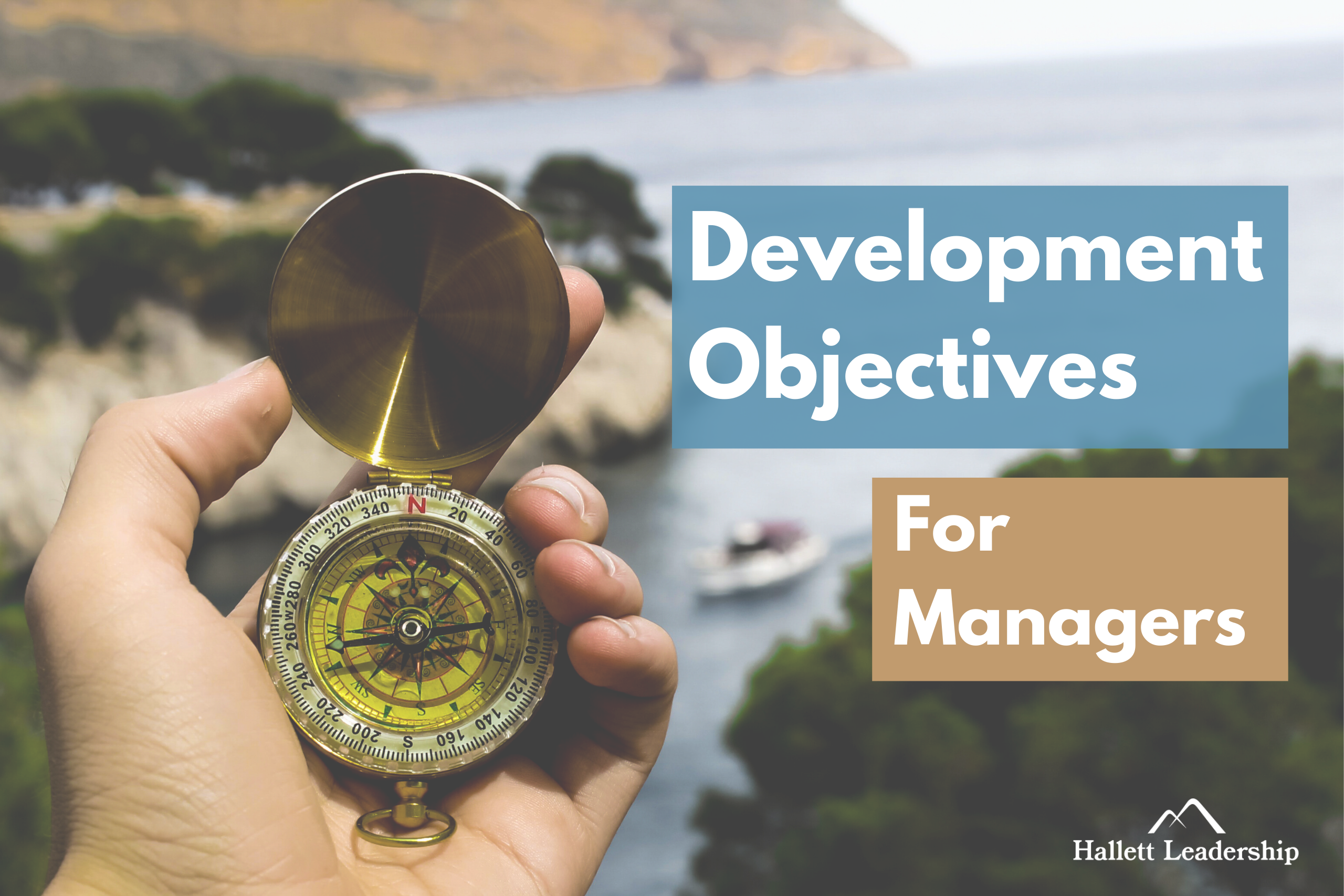For decades, companies have identified “high potential” employees and established special training and development for them. While this is still a common practice, we at Hallett Leadership believe that the missing piece in most organizations today is high performance leadership capability at every level of the organization. For this reason, we champion the effort to develop all of your people into effective leaders, and here propose a few development objectives for managers.
It is reasonable to assume that if a person is in your employ, they would very much like to develop to their full professional potential, and in addition to their daily activities, have opportunities to grow and become more engaged.
Here are a few development objectives for managers to keep in mind as you prepare to engage your people through training, coaching, and assignments intended to develop them into high performance leaders – and spread high performance leadership through every tier of your organization.
Cultivate Motivation For Ambitious, Inspiring Goals
Research has shown that the most effective leaders are genuinely motivated by ambitious goals that extend beyond their immediate areas of responsibility – more so than they are by goals established for personal ambition.
Not everyone arrives at your company motivated by ambitious, inspiring goals. Although many people have the capacity for this deep level of motivation… it is sometimes helpful for people to develop these goals within the context of a robust group discussion and collaborative effort.
Therefore, when you are developing your people, consider coaching them through the process of developing a personal mission statement that inspires them and harnesses their motivation in a powerful way.
Powerful mission statements usually don’t get written in a single meeting or seminar. They normally require contemplation and rewriting. So coach your people in this process, and as they progress with training, encourage them to keep their mission statements in progress in an easy-to-see place. This is a simple and effective way to help the statement begin to pervade their daily activities.
Cultivate A Lifelong Learning Orientation
In a world that is volatile, uncertain, complex, and ambiguous, the only thing certain is that things will change. Technology will change. Industries will change. The world will change. Therefore, instead of relying on certain skills or technologies for our livelihoods, we encourage all of our students to develop and utilize the meta-skill of lifelong learning.
A lifelong learner is curious, striving to improve him or herself in multiple domains of life without being prompted. Oftentimes, the motivation for learning is intrinsic, and something to be enjoyed for its own sake.
While many people arrive in our Accelerated Leadership Program (ALP) with a lifelong learning habit in place, we encourage everyone to cultivate that habit – as achievement and learning go hand in hand… particularly in an information economy.
Cultivate The Ability To Engage, Inspire, and Motivate
High performance leaders, no matter their personality profile, excel at engaging the people around them, rallying them behind an idea, inspiring them, or simply leading them into a social space where collaborative magic can happen.
The ability to engage effectively with other human beings may not come naturally to everyone, but the skill can be learned by anyone.
Assign Leaders-in-Training To Challenging, Diverse Roles
The final development objective we list here is to put your managers through complex and challenging projects or roles. While it is true that they will continue to develop their skills through the simple process of moving upward in the ranks, giving each a chance to operate beyond their comfort zone is an incredible gift – especially if complemented by thoughtful coaching and cheerleading from superiors willing to delegate, track progress, and allow for the mistakes inevitable in the learning process.
The benefit of taking on more challenging responsibilities doesn’t only accrue to the managers – it also frees their bosses to take on more challenging objectives as well.
Ultimately, growth and development through challenging assignments can support the cultivation of desired leadership behaviors, such as: reaching across the aisle, creating synergy in the organization, and serving as internal champions for the shared vision of the organization – connecting with other businesses and departments to create unity.
Conclusion
We hope these development objectives for managers are helpful as you begin to consider how you can support your people in realizing their full potential within your company over the medium and long term. Please get in touch if we can be of support with developing your leadership bench through coaching.





